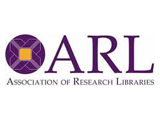
ARL has published an issue brief on the US Copyright Office’s June 4, 2015, Report on Orphan Works and Mass Digitization (PDF), which includes recommendations for legislation on orphan works—copyrighted works whose owners are impossible to identify or contact—and the creation of an extended collective licensing (ECL) regime for mass digitization. ARL’s “Issue Brief: Copyright Office Report on Orphan Works” (PDF) focuses only on the Copyright Office’s recommendations regarding orphan works.
The Copyright Office’s report asserts that “the orphan works problem is widespread and significant” and that “anyone using an orphan work does so under a legal cloud, as there is always the possibility that the copyright owner could emerge after the use commenced and seek substantial infringement damages, an injunction, and/or attorneys’ fees.” The Copyright Office rejects the idea that fair use can provide an adequate solution because “[t]he judiciary has yet to explicitly address how to apply fair use to orphan works…Also, fair use jurisprudence is, because of its flexibility and fact-specific nature, a less concrete foundation for the beneficial use of orphan works than legislation, and is always subject to change.” The Copyright Office also rejects the role of best practices in an orphan works solution because they “often are arrived at absent consultation with authors and other copyright owners, and therefore run the risk of being more of an aspirational document—what a community believes fair use ought to be—than a descriptive one.”
The Copyright Office’s denigration of fair use as a solution to the orphan works problem is disappointing. What the Copyright Office fails to acknowledge in its analysis of recent fair use jurisprudence is that fair use is a fairly predictable doctrine. With respect to community best practices, it is true that they are made without consultation with rightsholders, but this is a conscious decision. Community best practices “arise from the community’s values and mission…not a compromise between those values and the competing interests of other parties.” Furthermore, these best practice documents are grounded in community practices, often supported by case law, not merely aspirational documents.
As an alternative, the Copyright Office proposes a model that provides for limitations on liability—draft legislation that is largely based on the Shawn Bentley Orphan Works Act of 2008, which was passed by the Senate, but failed in the House of Representatives. The Copyright Office fails to recognize that its proposed burdensome legislation that requires extremely time- and resource-intensive searches as well as “notice of use” requirements could cause users to forego the use of orphan works. (The notice of use requirements direct users to submit detailed information to the Copyright Office about the intended use and the nature of the search.) Finally, the notice of use provision is as poisonous now as it was in 2008. If it is included in an orphan works provision, it will ensure that the provision is rarely, if ever, used.
Read the full “Issue Brief: Copyright Office Report on Orphan Works” (PDF).
























